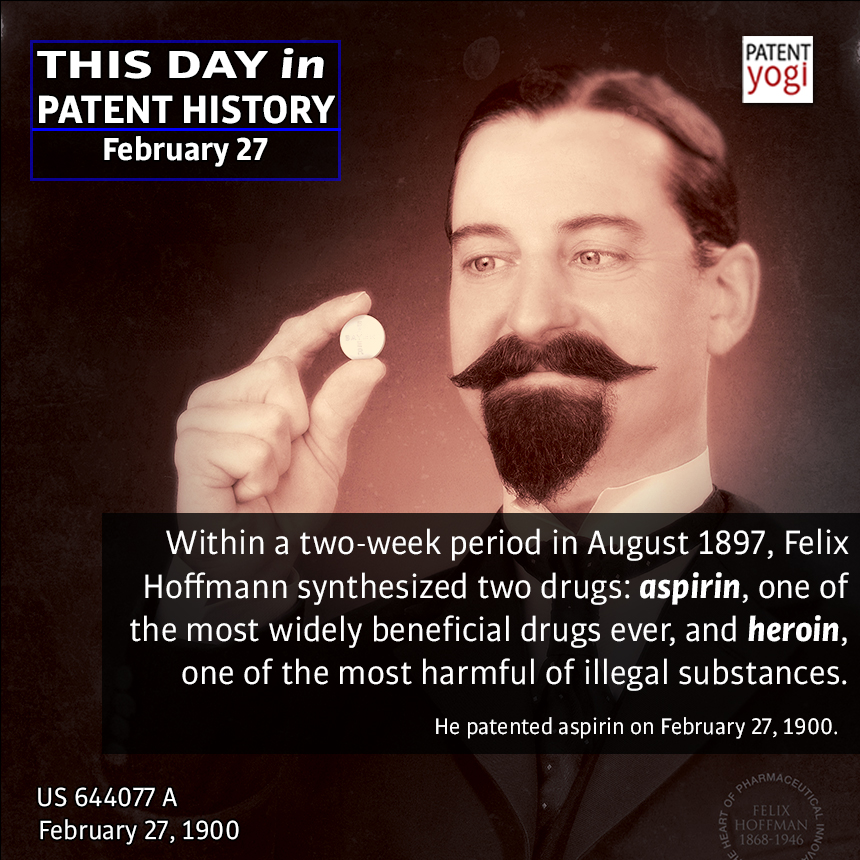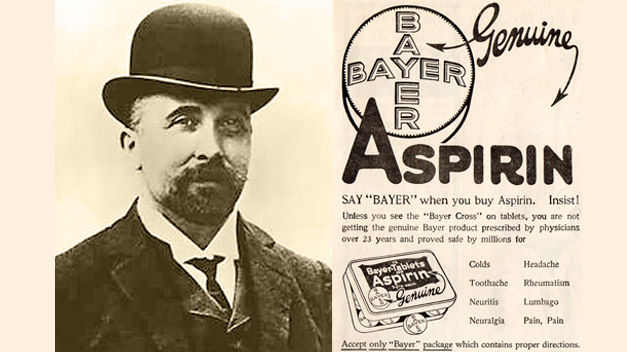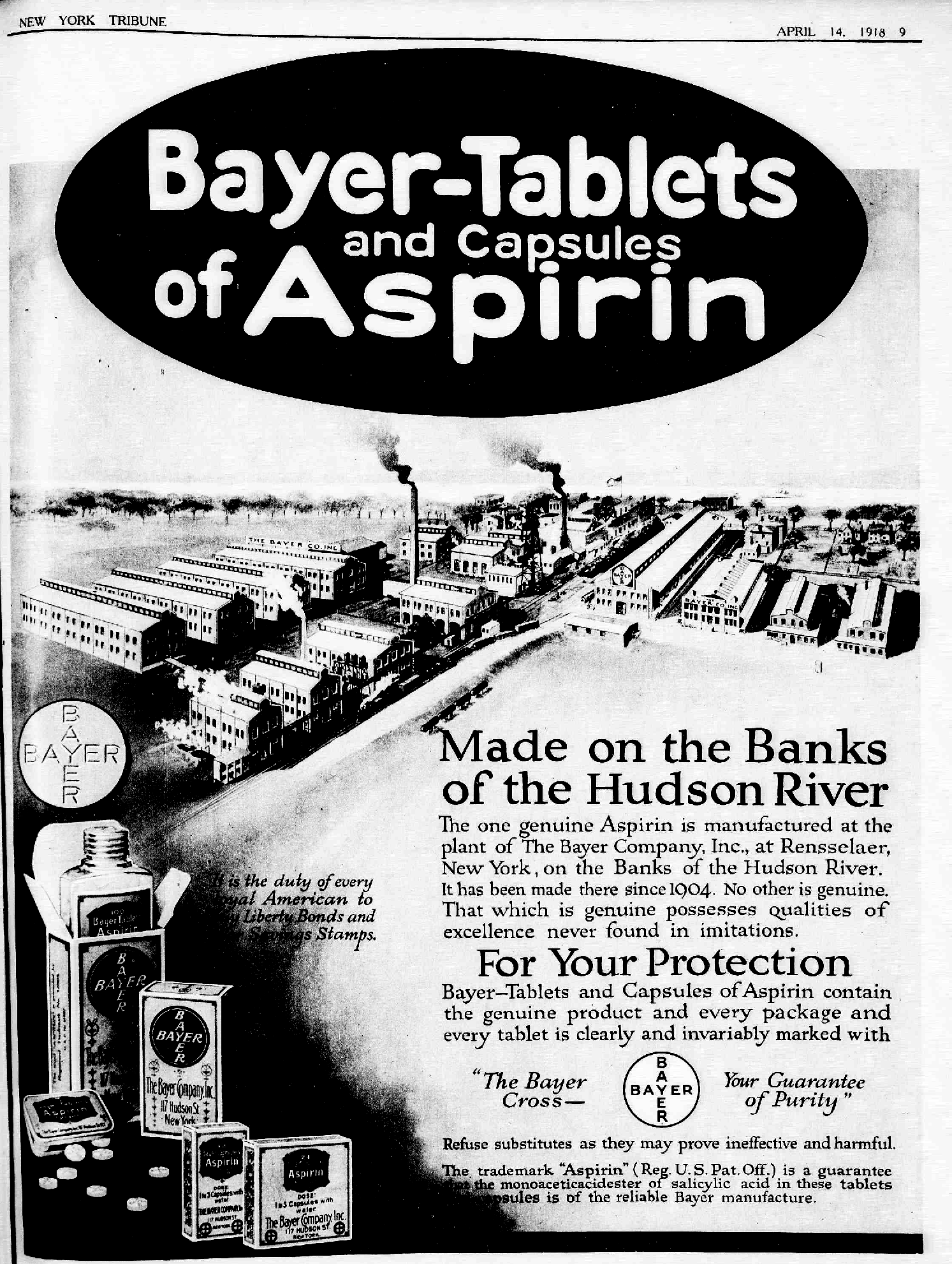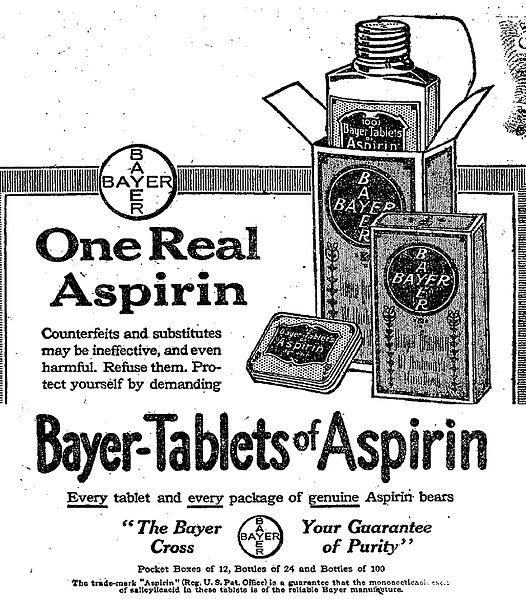
Within a two-week period in August 1897, Felix Hoffmann synthesized two drugs: aspirin, one of the most widely beneficial drugs ever, and heroin, one of the most harmful of illegal substances. He patented aspirin on February 27, 1900.
While working at Bayer, Felix Hoffmann synthesized chemically pure and stable form of acetylsalicylic acid (the active ingredient in Aspirin) for the first time in 1897.
Bayer applied for a German patent, but it was rejected, as acetylsalicylic acid had been synthesized earlier, first by a French chemist and later by a German chemist. However, unlike Hoffmann they had been unable to produce it in a pure and stable form. The Bayer Company realized that it had a potential blockbuster in aspirin, so they aggressively marketed the drug worldwide. In the US, Bayer was able to obtain a patent, giving the company the monopoly on manufacturing the drug from 1900 to 1917.
Although, the medical use of aspirin and related substances stretches back to antiquity, but pure aspirin has only been manufactured and marketed since 1899. Since then, acetylsalicylic acid has attained a leading position world-wide in the prescription-free therapy of painful, inflammatory and feverish states.
In fact, Bayer named the drug “Aspirin”. However, the drug was so popular that the name “aspirin” became a generic name and Bayer’s rights to the trademark were lost or sold in many countries. Aspirin’s profitability led to fierce competition and the proliferation of aspirin brands and products. Aspirin’s popularity declined only after the development of paracetamol in 1956 and ibuprofen in 1962.
Sources: Felix Hoffmann; Fascinating facts about Felix Hoffmann inventor of Aspirin in 1897; Wikipedia
Publication number: US644077 A
Publication type: Grant
Publication date: 27 Feb 1900
Filing date: 1 Aug 1898
Priority date: 1 Aug 1898
Inventors: Felix Hoffmann
Original Assignee: Farbenfabriken Of Elberfeld Company
US644077



